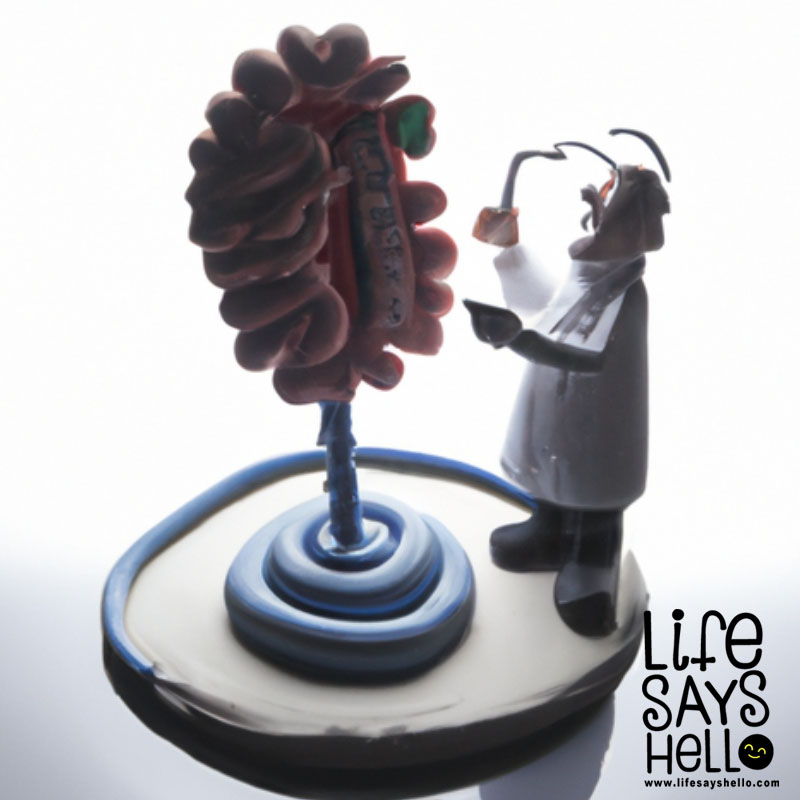Why Am I Always So Tired? 10 Reasons You Have No Energy as a Woman

Feeling constantly drained and fatigued? Like you just can’t catch a break and recharge your batteries? You’re not alone, sister!
As women, we tend to carry a unique burden of fatigue — between the hormone rollercoasters, the juggling of work, family, and personal needs, and the extra susceptibility to certain energy-sucking conditions. It’s no wonder we feel pooped!
But just why do we deal with low energy, and what can we do about it? I’m breaking down the top 10 reasons you may feel tired and wiped out all the time as a woman. Get ready to stop asking “why am I always tired?” and start taking back your mojo!
1. Your Monthly Menstrual Cycle
Let’s start with the obvious. Our periods, am I right?
It’s no secret that menstruation often comes with a side of fatigue. In the lead up to your period, estrogen levels rise, then take a steep drop right before you bleed.
This monthly hormonal rollercoaster can throw your entire body out of whack — especially your energy levels. Estrogen plays a key role in regulating serotonin, dopamine, and other “feel good” brain chemicals that keep your energy and mood up.
When your estrogen crashes, it drags down these neurotransmitters with it. Hello, period fatigue!
To make matters worse, if you have a heavy flow, the blood loss can sap your iron levels, reducing oxygen circulation and leaving you more drained.
No wonder we want to curl up with a heating pad and sleep for a week! Your period fatigue is real.
While you can’t skip your period (wouldn’t that be nice?), you can minimize the fatigue impact:
- Take an iron supplement during your period if needed
- Reduce activity and expect less from yourself that week
- Treat yourself to rest and comfort — you deserve it!
2. Perimenopause and Menopause Madness
As if periods weren’t enough, our hormone rollercoaster continues into perimenopause and menopause. Joy!
Perimenopause refers to the 5-10 years leading up to menopause when estrogen levels start to fluctuate and decline. This transition takes a toll, with fatigue being one of the most common symptoms.
Up to 80% of perimenopausal women deal with exhaustion, likely caused by the estrogen drops messing with sleep quality and body temperature regulation.
Then comes menopause when your periods stop completely, marking the end of fertility. This extreme hormonal shift often comes with severe hot flashes, night sweats, and insomnia — a perfect recipe for fatigue!
No longer having estrogen is also thought to directly hamper energy production in your cells’ mitochondria. What a drag!
Supporting your body through peri- and menopause is critical to help minimize the fatigue:
- Exercise regularly to aid hormone balance and sleep
- Consider hormone therapy if symptoms are severe
- Avoid triggers like alcohol, spicy foods, stress, and hot environments
- Practice good sleep hygiene habits each night
This too shall pass! Take it easy on yourself.
3. Your Thyroid Is All Out of Whack
Your thyroid — that little butterfly-shaped gland in your neck — has an enormous impact on your energy levels. It produces hormones that control how your cells use energy.
When your thyroid is underactive (hypothyroidism), it pumps out too little of these hormones, leaving you feeling sluggish, exhausted, and like you’re moving through molasses.
Low thyroid is way more common in women, with estimates ranging from 3-8% of women affected.
On the flip side, an overactive thyroid (hyperthyroidism) produces too much hormone, speeding up your metabolism. This can leave you feeling wired but still fatigued.
Both hypo and hyperthyroidism can cause sleep problems too, worsening fatigue. Getting your thyroid in proper balance is critical for optimal energy.
Signs your thyroid may be off:
- Constant exhaustion despite adequate sleep
- Weight changes
- Temperature sensitivity
- Hair loss
- Bowel issues like constipation or diarrhea
Don’t ignore these symptoms! See your doctor and get blood work done to test your thyroid hormones. With proper treatment, you can get back your get-up-and-go.
4. You’ve Got a Bun in the Oven
When you’re expecting, feeling tired is just part of the pregnancy package. Your body is working overtime to grow a baby, after all!
Fatigue hits especially hard in the early months when progesterone levels surge to maintain the pregnancy. Progesterone has sedative effects, making you feel more sluggish.
The fatigue usually lifts in the second trimester, but returns with a vengeance in the third trimester as your belly expands, disrupting sleep.
Late in pregnancy, you’re also carrying a lot more weight around, your blood volume has increased up to 50%, and your metabolism is revved up — all of which zap your energy.
It’s crucial to rest as much as possible during pregnancy and not feel guilty about it. Growing a human is hard work!
- Take naps, go to bed early, and sit down whenever possible.
- Eat a balanced diet with plenty of nutrients.
- Stay active with light walking, prenatal yoga, and swimming.
- Listen to your body and don’t overexert yourself.
This fatigue phase will pass once baby arrives! Then the sleepless newborn phase begins… oh, the joys of motherhood!
5. You’re Not Getting Quality Sleep
Here’s a simple but common reason for constant fatigue: you’re just not sleeping enough or well enough each night.
Adults need 7-9 hours of quality shut-eye per night. When you don’t get enough sleep or have poor sleep quality, it’s no wonder you walk around feeling drained.
Maybe you’re staying up too late binge-watching shows. Perhaps stress or anxiety keep you tossing and turning. Or you may have an undiagnosed sleep disorder like insomnia or sleep apnea interfering with your rest.
Poor sleep hygiene — like using screens before bed, irregular sleep schedules, or uncomfortable sleep environments — can also prevent deep, restorative sleep.
Trouble sleeping is often a vicious cycle with fatigue too. You’re tired all day because you didn’t sleep well, but then you’re too exhausted at night to get the good sleep you so desperately need.
To break the cycle, be proactive about optimizing your sleep habits:
- Stick to a consistent bedtime and wake time
- Limit blue light exposure at night
- Avoid caffeine late in the day
- Do relaxing activities before bed like reading or meditation
- Make sure your bedroom is cool, dark, and quiet
Quality sleep is crucial for energy, focus, and health. Make it a priority!
6. You’re Under Too Much Stress
Our modern lives are filled with constant stressors — demanding jobs, financial worries, relationship struggles, traumatic events, and more.
Being in a frequent state of stress response causes your adrenal glands to pump out cortisol and other hormones that put your body in fight-or-flight mode.
Great for running from a bear, not so great when sustained long term. All that cortisol ends up wearing you down, leaving you depleted.
Studies show there’s a direct correlation between high stress and fatigue levels. Stress can also impact sleep quality, exercise habits, and mental health, all of which affect energy levels.
Managing stress is so important to combat fatigue. Some go-to stress relievers include:
- Daily meditation and deep breathing
- Going for nature walks
- Enjoying hobbies that relax you
- Setting healthy boundaries
- Having social support
- Getting therapy if needed
Don’t dismiss stress as a cause of fatigue — address it head on! Your energy will thank you.
7. Your Diet Is Draining You
“You are what you eat” applies big time to your energy levels. If your diet is lacking in key nutrients, high in inflammatory foods, or filled with sugar crashes, no wonder you feel depleted!
Here are some dietary habits that can drain your energy:
Nutrient deficiencies - Being low in iron, B vitamins, magnesium, vitamin D, or other nutrients can directly sap your energy. Take a quality multivitamin to cover your bases!
Irregular meals - Going too long without eating, or big spikes and crashes in blood sugar can cause fatigue. Eat regularly spaced, balanced meals and snacks.
High sugar/carb intake - Processed carbs and sugary foods lead to crashes once the temporary glucose rush ends. Eat more proteins, fats and complex carbs.
Dehydration - Don’t forget about your water intake! Dehydration exacerbates fatigue. Drink plenty of water throughout the day.
Alcohol - Booze can mess with sleep quality. Limit intake to 1 drink per day or less.
Inflammatory foods - Food sensitivities, dairy, gluten, and processed foods can all cause inflammation linked to fatigue.
Focus your diet on whole, energizing foods like veggies, fruits, lean proteins, nuts, seeds, and healthy fats. You’ll be amazed at the energy boost!
8. You’re Too Sedentary
Humans were made to move! But with modern conveniences and desk jobs, it’s easy for women to become largely sedentary.
All that sitting and lack of activity leads to reductions in baseline energy expenditure. Your body adapts to more “resting” and starts conserving energy, making you feel sluggish.
Exercise is the perfect antidote! Regular physical activity helps boost energy in multiple ways:
- Increases blood flow and oxygen circulation
- Triggers release of energizing neurotransmitters
- Reduces inflammation
- Improves sleep quality
- Raises body temperature and metabolism
Aim for 150 minutes of moderate exercise or 75 minutes of vigorous exercise per week. Mix it up with activities you enjoy like walking, swimming, dance classes, cycling, yoga, and more.
You don’t have to train for a marathon. Just avoid being sedentary and make movement a daily habit!
9. You’re Carrying Excess Weight
Being overweight comes with a host of health issues — including feeling tired and run down.
Those extra pounds put more physical strain on your body and can worsen inflammation, which directly impact energy levels.
Excess weight also contributes to issues like sleep apnea, joint pain, and cardiovascular problems, which compound fatigue.
Even losing just 5-10% of your body weight through improved diet and exercise can make a big difference in your fatigue levels.
Focus on sustainable, healthy changes like:
- Increasing veggie, fruit and lean protein intake
- Limiting processed/sugary foods
- Drinking more water
- Starting a beginner workout routine
- Walking more throughout your day
Your energy and vibrancy will return as the excess weight comes off!
10. You’ve Got an Underlying Health Condition
Sometimes being tired all the time can stem from an underlying medical condition. Several health issues that commonly cause fatigue include:
Anemia - Low iron levels mean your blood cells can’t carry enough oxygen. Treatment with iron supplements helps boost energy.
Chronic Fatigue Syndrome - This complex disorder causes extreme, unexplained fatigue, especially in women. Addressing the multiple factors involved can help.
Depression - Fatigue and lack of energy are hallmark symptoms of depression, which affects women more than men. Therapy, lifestyle changes, and/or medication can improve depression and energy levels.
Diabetes - Uncontrolled blood sugar levels in diabetes result in chronically low energy. See your doctor to manage your blood sugar.
Don’t just brush off ongoing fatigue! Speak with your doctor to test for and address any underlying conditions. You deserve to feel your best!
Time to Regain Your Pep
I hope this gives you a better understanding of why we women often feel so drained, along with tangible ways to start reclaiming your energy:
- Work with your menstrual cycles, not against them
- Support your body through hormonal transitions
- Check your thyroid and blood levels
- Prioritize sleep quality and quantity
- Learn to manage stress effectively
- Optimize your diet
- Stay active each day
- Lose excess weight if needed
- See your doctor to rule out medical conditions
Don’t settle for a fatigued “new normal”! Take action to nourish your mind, body and spirit. You deserve to feel energized, vibrant and ready to take on the world.
Now go out there and slay, superstar!




Comments